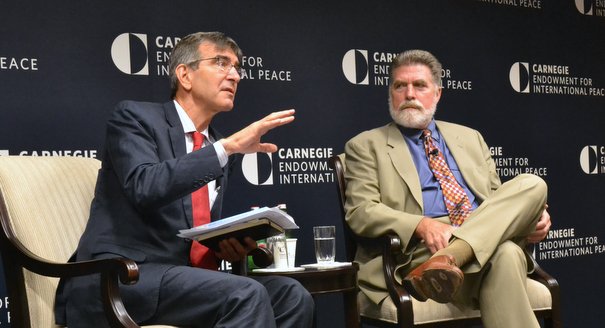Registration
You will receive an email confirming your registration.
Can and should the United States do more to reduce the role of nuclear weapons in its security strategy and the number of weapons in its arsenal? This question is particularly timely given the lively international debate on nuclear disarmament. In Brad Roberts’ new book, The Case for U.S. Nuclear Weapons in the 21st Century, he argues that this debate must be informed by the United States’ experience of trying to adapt deterrence to a post–Cold War world. Can important lessons be drawn from this experience for the disarmament enterprise?
Brad Roberts discussed his analysis. Carnegie’s George Perkovich moderated a conversation on the above questions and more.
Brad Roberts
Brad Roberts is director of the Center for Global Security Research at Lawrence Livermore National Laboratory.
George Perkovich
George Perkovich is vice president for studies at the Carnegie Endowment for International Peace.
